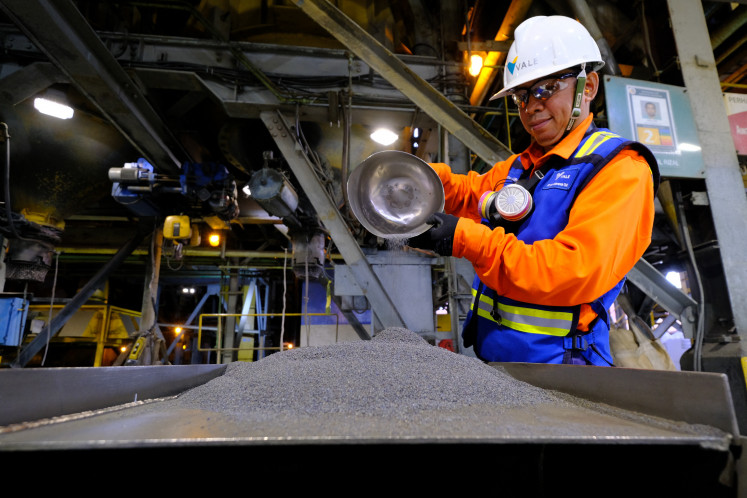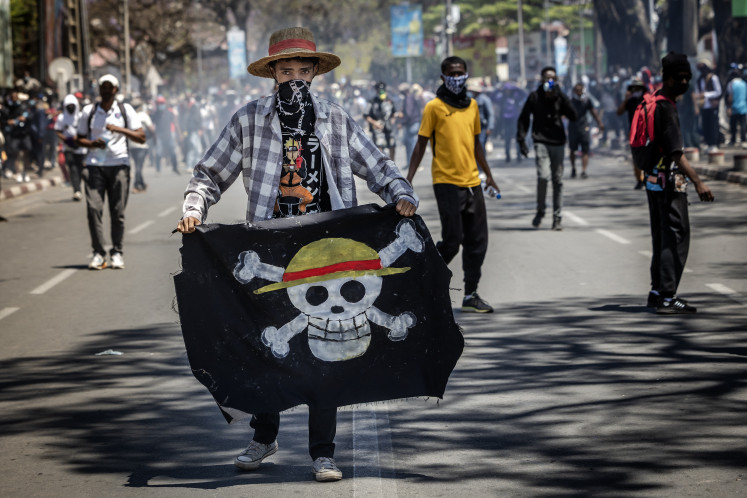Popular Reads
Top Results
Can't find what you're looking for?
View all search resultsPopular Reads
Top Results
Can't find what you're looking for?
View all search resultsA new coronavirus strategy
Change text size
Gift Premium Articles
to Anyone
T
he human and economic devastation caused by the novel coronavirus is multiplying every day. The spread of the virus has vengefully demonstrated that every day we lose in fighting it increases the difficulty exponentially.
Just as silently, just as lethally, a parallel contagion is exponentially unfolding in the economy. Every day we lose in containing the economic crisis caused by the virus, the eventual cost increases exponentially.
A vivid illustration of this exponentially increasing costs: The US rescue package being negotiated in the Congress increased from $1trillion a week ago to $2trillion plus now. The Federal Reserve needed to resolve to “unlimited” quantitative easy, and even that failed to assuage the financial markets which continue to free fall.
There is nowhere to hide. Even in China, where victory has been declared over the virus, and where the markets held up remarkably well during the height of that country’s crisis, markets finally tanked to new lows in the last week as the virus literally went “viral” everywhere outside of China. The economy is global. China might have temporarily won the fight against the virus; it cannot win against a fast-shrinking world economy.
Lengthy economy-wide shutdowns may create a second Great Depression. It is an existential threat. Economies may not be able to quickly bounce back even after the war against the virus is over, if too much of the tissues and muscle of the healthy economic body has been cutoff – as China’s experience so far shows. In this sense, President Trump is right “The cure cannot be worse than the disease.”
Therefore in the fight against the economic crisis, it is critical that shutdowns end with a well-defined horizon. After a 3-4 week period, policy makers must encourage normal economic activity to resume. How to make this happen?
Mass antibody test is the answer. These tests would allow us not only to understand the true extent of the infection – badly needed statistics needed to understand the virus, but also crucially to identify the healthy and newly immune population that can go back to work and restart the economic engine. Compared to the diagnostic tests, these are easier and cheaper. There are already commercial versions available; scientists the world over are racing for its development.
Green shoots of hope are emerging. Italy has now seen two days in a row a reduction of new cases. The turn started on March 22, exactly 14 days after the country was locked down. These numbers match well with those from China. We should have hope. But we must also be courageous. The virus cannot be eradicated and that should never be the goal of the shutdown. Instead, building natural defense is a better long-term strategy in the absence of effective treatment and a vaccine.
The re-opening of the economy should be accompanied by other policy pillars. Bolstering defense of nursing homes and protecting the most vulnerable remains a policy priority. Making sure that the sick and those with pre-existing conditions stay home is another. Their lost incomes should be backstopped by the government.
But the key is that allowing the healthy and immune population to go back to work is the only way to ensure we can emerge from this crisis whole. In addition, if we take this opportunity to make strategic long-term investment in infrastructure – both physical and intellectual, we will have turned a crisis into an opportunity for long term growth.
“Never let a good crisis go to waste” – Winston Churchill.
***
INSEAD professor of finance and AXA chaired professor in financial market risk










